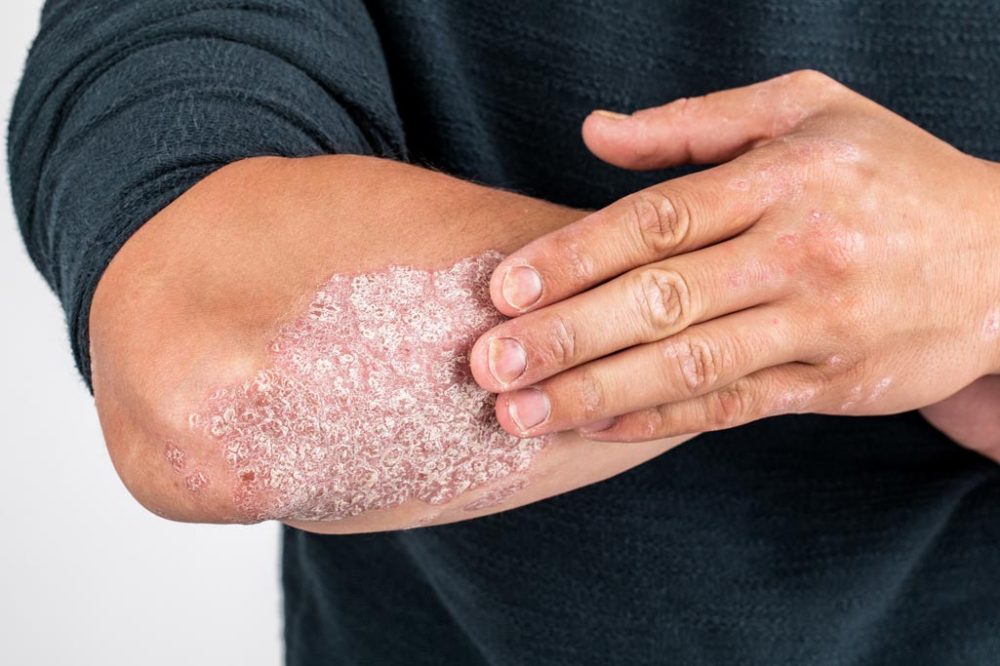Advertisment
New four-Year Sotyktu (deucravacitinib) data demonstrates durable response rates and consistent safety in moderate-to-severe plaque psoriasis – BMS

Bristol Myers Squibb announced new four-year results from the POETYK PSO long-term extension (LTE) trial of Sotyktu (deucravacitinib) treatment in adult patients with moderate-to-severe plaque psoriasis.
After four years of continuous treatment, Week 208 responses for Psoriasis Area and Severity Index (PASI) 75 and 90 were 71.7% and 47.5%, respectively, and 57.2% for static Physician’s Global Assessment (sPGA) 0/1 (clear/almost clear), using modified nonresponder imputation (mNRI). The safety profile of Sotyktu at Year 4 remained consistent with the established safety profile, with no new safety signals identified. These data were presented at the European Academy of Dermatology and Venereology (EADV) Spring Symposium in St. Julian’s, Malta taking place May 16-18, 2024.
“These four-year results further validate the safety profile, efficacy and key role of once-daily Sotyktu, the first and only TYK2 inhibitor available, for adults with moderate-to-severe plaque psoriasis,” said April Armstrong, MD, MPH, clinical investigator in the POETYK PSO clinical trial program and professor and chief of dermatology at the University of California, Los Angeles. “Many patients and their healthcare providers are looking for an efficacious, convenient oral treatment option that provides sustained relief from this chronic disease, allowing patients to prioritize other aspects of their daily lives. These findings further reinforce that we are able to offer a potential oral standard of care to meet patients’ needs.”
The efficacy analysis included 513 patients who received continuous Sotyktu treatment from Day 1 in the pivotal POETYK PSO-1 and POETYK PSO-2 trials and transitioned to the POETYK PSO-LTE trial. Clinical efficacy outcomes were maintained in patients who were continuously treated with Sotyktu from baseline through Year 4, with sustained response rates for PASI 75 of 71.7% at Year 4 (Year 1, 72.0%; Year 3, 73.8%), PASI 90 of 47.5% (Year 1, 45.6%; Year 3, 49.0%) and sPGA 0/1 of 57.2% (Year 1, 57.7%; Year 3, 55.2%).
The safety analysis included 1,519 patients who received at least one dose of Sotyktu across POETYK PSO-1, POETYK PSO-2 and POETYK PSO-LTE. Cumulative exposure from parent trial randomization was 4,392.8 patient-years (PYs) for the safety analyses. With increased exposure to Sotyktu, the exposure-adjusted incidence rates (EAIRs)/100 PYs at Year 4 decreased or remained the same as those at Year 1 for adverse events (AEs) (Year 1, 229.2; Year 4, 131.7), serious AEs (Year 1, 5.7; Year 4, 5.0), discontinuation due to AEs (Year 1, 4.4; Year 4, 2.2), herpes zoster (Year 1, 0.8; Year 4, 0.6), malignancies (Year 1, 1.0; Year 4, 0.9), major adverse cardiovascular events (Year 1, 0.3; Year 4, 0.3), venous thromboembolism (Year 1, 0.2; Year 4, 0.1) and deaths (Year 1, 0.2; Year 4, 0.3). EAIRs/100 PYs were calculated as the number of patients with an AE over the total exposure time for all patients at risk (time to an initial AE occurrence for patients with an AE and time of total exposure for patients without an AE).
About the POETYK PSO Clinical Trial Program : PrOgram to Evaluate the efficacy and safety of Sotyktu (deucravacitinib), a selective TYK2 inhibitor (POETYK) PSO-1 (NCT03624127) and POETYK PSO-2 (NCT03611751) were global Phase III studies designed to evaluate the efficacy of Sotyktu compared to placebo and Otezla (apremilast), and the safety of Sotyktu, in patients with moderate-to-severe plaque psoriasis. Both POETYK PSO-1, which enrolled 666 patients, and POETYK PSO-2, which enrolled 1,020 patients, were multicenter, randomized, double-blind trials that evaluated Sotyktu (6 mg once daily) compared to placebo and Otezla (30 mg twice daily). POETYK PSO-2 included a randomized withdrawal and retreatment period after Week 24.
The co-primary endpoints of both POETYK PSO-1 and POETYK PSO-2 were the percentage of patients who achieved Psoriasis Area and Severity Index (PASI) 75 response and those who achieved static Physician’s Global Assessment (sPGA) score of 0 or 1 (clear/almost clear) at Week 16 versus placebo. Key secondary endpoints of the trials included the percentage of patients who achieved PASI 75 and sPGA 0/1 compared to Otezla at Week 16 and other measures evaluating Sotyktu versus placebo and Otezla.
Across both clinical trials and timepoints, significantly more Sotyktu-treated patients achieved a sPGA score of 0/1, PASI 75 response and PASI 90 response. Responses persisted through Week 52, as 82% (187/228) of patients who achieved PASI 75 with Sotyktu at Week 24 maintained their response at Week 52 in POETYK PSO-1. In POETYK PSO-2, 80% (119/148) of patients who continued Sotyktu maintained PASI 75 response compared to 31% (47/150) of patients who were withdrawn from Sotyktu.
Following the 52-week POETYK PSO-1 and POETYK PSO-2 trials, patients could enroll in the ongoing POETYK PSO long-term extension (LTE) trial (NCT04036435) and receive open-label Sotyktu 6 mg once-daily. In the LTE trial, 1,221 patients were enrolled and received at least one dose of Sotyktu. Efficacy was analyzed utilizing treatment failure rules (TFR) method of imputation, along with sensitivity analyses using modified non-responder imputation and as-observed analysis, which have been used in similar analyses with other agents. In addition to POETYK PSO-1, POETYK PSO-2 and POETYK PSO-LTE, Bristol Myers Squibb has evaluated Sotyktu in two other Phase 3 studies in psoriasis: POETYK PSO-3 (NCT04167462) and POETYK PSO-4 (NCT03924427).





